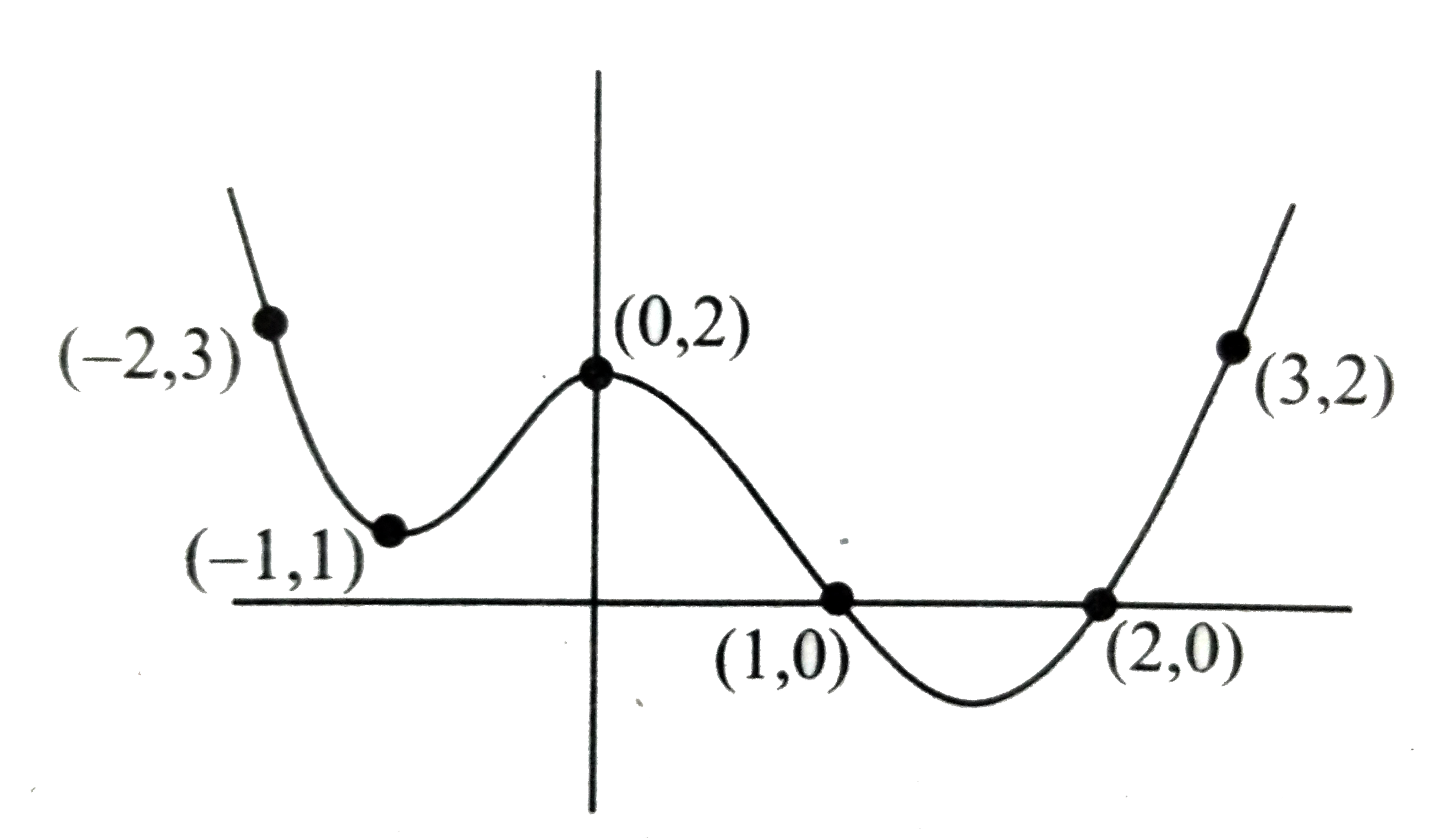The polynomial P(x)=x3+ax2+bx+c has the property that the mean of its roots, the product of its roots, and the sum of its coefficients are all equal. If the y-intercept of the graph of y=P(x) is 2,
The value of b isSolution in Tamil
−11
−9
−7
5
The correct Answer is:A
The y-intercept is at x=0, so we have c=2, meaning that the product of the roots is −2.
We know that −a is the sum of the roots.
The average of the roots is equal to the product, so the sum of the roots is −6, and a=6.
Finally, 1+a+b+c=2 as well, so we have 1+6+b+2=−2
⇒b=−11
∴P(x)=x3+6x2−11x+2
∴P(1)=1+6−11+2=−2
Topper's Solved these Questions
- BOOK - CENGAGECHAPTER - THEORY OF EQUATIONSEXERCISE - Multiple Correct Answer6videos
THEORY OF EQUATIONS
- BOOK - CENGAGECHAPTER - THEORY OF EQUATIONSEXERCISE - Examples133videos
THEORY OF EQUATIONS
- BOOK - CENGAGECHAPTER - THEORY OF EQUATIONSEXERCISE - JEE Advanced Previous Year9videos
THEORY OF EQUATIONS
- BOOK - CENGAGECHAPTER - STRAIGHT LINESEXERCISE - JEE Advanced Previous Year4videos
STRAIGHT LINES
- BOOK - CENGAGECHAPTER - THREE DIMENSIONAL GEOMETRYEXERCISE - Question Bank12videos
THREE DIMENSIONAL GEOMETRY
Similar Questions
If c≠0 and the equation p/(2x)=a/(x+c)+b/(x−c) has two equal roots, then p can be (√a−√b)2 b. (√a+√b)2 c. a+b d. a−b
05:19View SolutionLet f(x) be a quadratic polynomial satisfying f(2) + f(4) = 0.
If unity is one root of f(x) = 0 then find the other root.02:45View SolutionQ. Let p and q real number such that p≠0,p2≠q and p2≠−q. if α and β are non-zero complex number satisfying α+β=−p and α3+β3=q, then a quadratic equation having αβ and βα as its roots is
03:38View Solutionabout to only mathematics
04:08View SolutionThe equation of the plane which has the property that the point Q(5,4,5) is the reflection of point P(1,2,3) through that plane, is ax+by+cz=d where a,b,c,d∈N. Find the least value of (a+b+c+d).
View SolutionIf ax^(2)+bx+c=0 has alpha as its roots and -ax^(2)+bx+c=0 has beta as its roots then (a)/(2)x^(2)+bx+c has a
00:55View SolutionThe polynomial P(x)=x^(3)+ax^(2)+bx+c has the property that the mean of its zeroes, the product of its zeroes,and the sum of its coefficients are all eqroes,If the y-intercept of the graph of y=P(x) is 2, then the value of b is
01:50View SolutionIn the given figure graph of y=p(x)=x4+ax3+bx2+cx+d is given

The product of all imaginery roots of p(x)=(0) is02:07View SolutionThe polynomial P(x)=x3+ax2+bx+c has the property that the mean of its roots, the product of its roots, and the sum of its coefficients are all equal. If the y-intercept of the graph of y=P(x) is 2,
The value of b is04:18View SolutionThe polynomial P(x)=x3+ax2+bx+c has the property that the mean of its roots, the product of its roots, and the sum of its coefficients are all equal. If the y-intercept of the graph of y=P(x) is 2,
The value of P(1) is03:00View SolutionThe roots of the equation of the polynomial p(x,y)=x2+y2 are-
03:08View SolutionDetermine the value of c if one of the roots of the equation of the polynomial p(x)=ax2+bx+c,a≠0 be 0.
05:44View SolutionThe polynomial P(x)=x3+ax2+bx+c has the property that the mean of its roots, the product of its roots, and the sum of its coefficients are all equal. If the y-intercept of the graph of y=P(x) is 2,
The value of b is03:28View SolutionThe polynomial P(x)=x3+ax2+bx+c has the property that the mean of its roots, the product of its roots, and the sum of its coefficients are all equal. If the y-intercept of the graph of y=P(x) is 2,
The value of P(1) is04:29View Solutionबहुपद P(x)=x3+ax2+bx+c इस प्रकार का गुणधर्म रखता है कि इसके शून्यों ( मूलों ) का माध्य इसके शून्यों का गुणनफल तथा इसके गुणांकों का योगफल, सभी बराबर है। यदि वक्र y=P(x) का y-अंतखण्ड 2 है , तो b का मान है -
04:18View Solution

